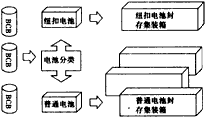(理)已知数列{an}满足a1=2,前n项和为Sn,an+1=
(1)若数列{bn}满足bn=a2n+a2n+1(n≥1),试求数列{bn}前3项的和T3; (2)若数列{cn}满足cn=a2n,试判断{cn}是否为等比数列,并说明理由; (3)当p=
|
(1)据题意得bn=a2n+a2n+1=a2n-a2n-2×2n=-4n,
所以{bn}成等差数列,故Tn=
•n=-2n(n+1)(4分)-4-4n 2
∴T3=-24
(2)(理)当p=
时,数列{cn}成等比数列;1 2
当p≠
时,数列{cn}不为等比数列1 2
理由如下:因为cn+1=a2n+2=pa2n+1+2n=p(-a2n-4n)+2n=-pcn-4pn+2n,
所以
=-p+cn+1 cn
,2n(1-2p) cn
故当p=
时,数列{cn}是首项为1,公比为-1 2
等比数列;1 2
当p≠
时,数列{cn}不成等比数列1 2
(3)bn=a2n+a2n+1=-4n,所以{bn}成等差数列
当p=
时a2n=cn=(-1 2
)n-1,1 2
因为S2n+1=a1+(a2+a3)+(a4+a5)+…+(a2n+a2n+1)S2n+1=a1+b1+b2+…+bn=2+(-4-8-12-…-4n)
=-2n2-2n+2(n≥1)
又S2n+3-S2n+1=-4n-4<0所以{S2n+1}单调递减
当n=1时,S3最大为-2所以-2≤log
(x2+3x)1 2
∴
⇒x∈[-4,-3)∪(0,1]x2+3x>0 x2+3x≤4


